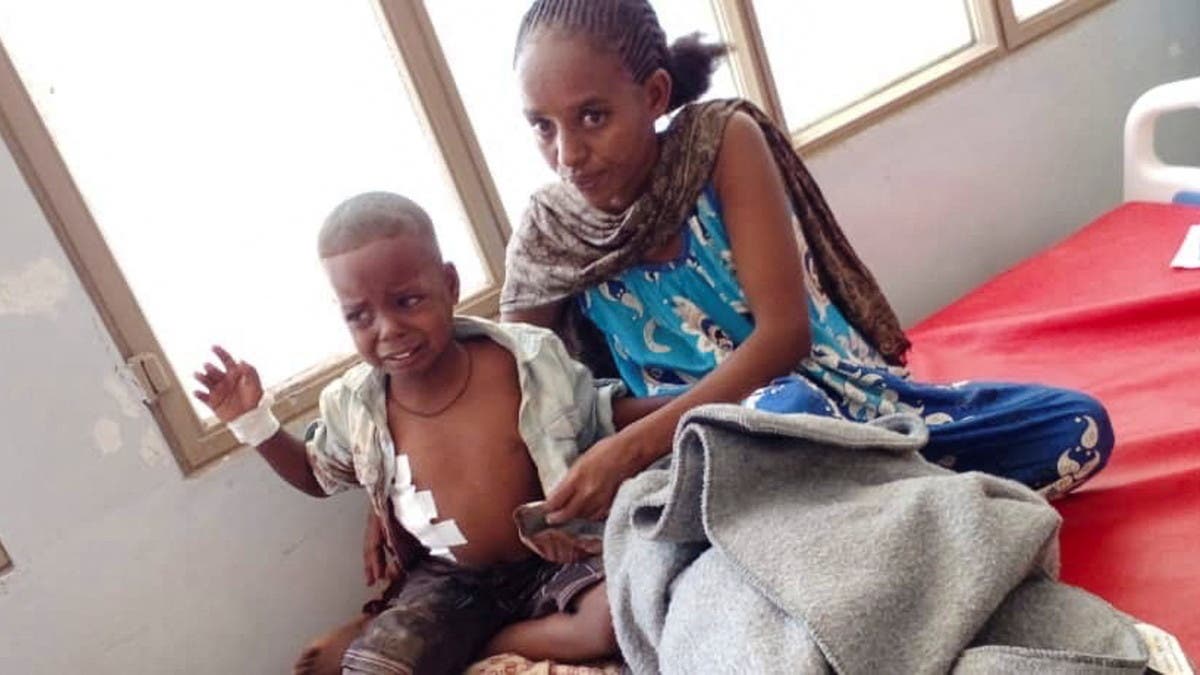Nearly 1,500 people died of malnutrition in just part of Ethiopia’s blockaded Tigray region over a four-month period last year, including more than 350 young children, a new report by the region’s health bureau says. It cites more than 5,000 blockade-related deaths in all from hunger and disease in the largest official death toll yet associated with the country’s war.
“Deaths are alarmingly increasing,” including from easily preventable diseases like rabies as medicines run out or expire, the head of Tigray’s health bureau, Hagos Godefay, told The Associated Press late last year as the findings were being compiled. “This is one of the worst times of my life, I can tell you.”
His report on the findings, published Wednesday by the independent Ethiopia Insight, says 5,421 deaths were confirmed in Tigray between July and October in an assessment by his bureau and some international aid groups. It was the first such assessment since the war between Tigray and Ethiopian forces began in November 2020, he said.
The deaths were overwhelmingly from malnutrition, infectious disease and noncommunicable diseases as the health bureau and partners sought to gauge the effects on Tigray’s population of its health system being largely destroyed by combatants.
For the latest headlines, follow our Google News channel online or via the app.
The deaths do not reflect people killed in combat, Hagos told the AP on Thursday in a call from the Tigray capital, Mekele, though the report reflects a small percentage of deaths from airstrikes.
The mortality assessment covered just roughly 40 percent of Tigray, he said, since occupation of some areas by combatants and the lack of fuel caused by the blockade has limited data-gathering and aid delivery.
“Since the magnitude of the destruction and health crisis in the inaccessible areas is undoubtedly high, the survey is bound to underreport the real extent of the crisis,” Hagos wrote.
Severe acute malnutrition in children under 5, at less than 2 percent in Tigray before the war, was now above 7 percent, he said. The assessment found at least 369 children under 5 had died of malnutrition, part of 1,479 people in all.
The AP last year confirmed the first starvation deaths under the blockade along with the government's ban on humanitarian workers bringing medicines. even personal ones, into Tigray,
Hagos told the AP that without medical supplies or vaccines, easily preventable disease like measles were emerging in Tigray and COVID-19 has begun to spread. HIV patients “are coming all the time to my office to ask if drugs are coming or not. But my hands are tied,” he said. Earlier this month, the United Nations said Ethiopia's government had released over 850,000 measles vaccines to Tigray,
Ethiopia’s government cut off almost all access to food aid, medical supplies, cash and fuel in June last year when the Tigray forces regained control of the region. Since then, the United Nations has repeatedly warned that less than 15 percent of the needed supplies have been entering Tigray under what it called a de facto humanitarian blockade. Ethiopia's government has expressed concern about aid falling into the hands of fighters.
But under a new wave of pressure this month after Tigray forces retreated back into their region amid a military offensive, Ethiopia’s foreign ministry in a statement on Sunday said it was working with aid partners to facilitate daily cargo flights to Tigray “to transport much-needed medicines and supplies.” The government in part has blamed issues with aid delivery on insecurity it says is caused by Tigray forces.
It is not clear when the daily flights will begin, though the International Committee of the Red Cross on Wednesday announced that it had made its first delivery of medical supplies to Tigray since September, calling it “a huge relief.”
An ICRC spokeswoman told the AP that the cargo of surgical supplies and essential drugs would help to treat at least 200 injured people, and that the group intends to send more supplies in the coming days and weeks.
Ethiopian government spokesman Legesse Tulu and Health Minister Lia Tadesse did not immediately respond to questions on Thursday about the daily flights and when the government’s blockade would be lifted completely to allow full access to the region.
“Aid organizations have warned that operations could cease completely by the end of February in Tigray,” UN spokesman Stephane Dujarric told reporters on Thursday.
Ethiopia’s government has sought to restrict reporting on the war and detained some journalists under the state of emergency, including a video freelancer accredited to the AP, Amir Aman Kiyaro.
Read more:
We are witnessing ‘hell’ in Tigray, it’s an ‘insult to humanity’: WHO’s Tedros
Ethiopia's Tigray rebels announce push into neighbouring Afar region
Aid agencies suspend work in northwest Tigray after deadly strike: UN

 World3 years ago
World3 years ago
 World3 years ago
World3 years ago
 Business12 months ago
Business12 months ago
 Entertainment7 years ago
Entertainment7 years ago
 World7 years ago
World7 years ago
 Entertainment7 years ago
Entertainment7 years ago






